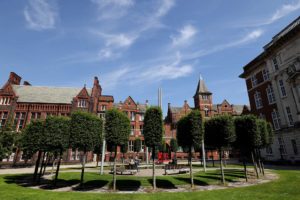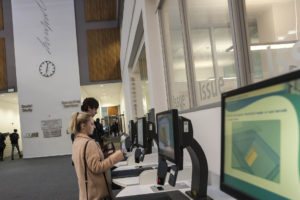Year Two builds on Year One’s foundation, introducing specialist modules that provide training in key concepts and techniques from the inorganic (eg metals, glass, pottery) and organic (eg human and animal bones, plants, DNA) archaeological evidence.
You will also gain knowledge of key issues and discoveries in the archaeology of many parts of Europe, Asia and Africa. This programme has an archaeological fieldwork (and/or museum-based experience) requirement that totals four weeks. Year One fieldwork usually consists of participation in a department organised training project for two weeks. In Year Two, students are placed on an appropriate excavation or relevant professional experience. Currently there are departmental research projects in Greece, Turkey, Jordan, Egypt, Saudi Arabia, Zambia as well as the UK.
Students take 30 credits of required modules and 30 credits of optional modules in Semester 1.
Students must take 15 credits of required modules and 45 credits of optional modules in Semester 1, and 30 credits of required modules and 30 credits of optional modules in Semester 2.
Optional modules must be chosen from at least TWO pathways:
Pathway 1 – Archaeological Methods and Practice
Pathway 2 – Prehistory
Pathway 3 – Ancient Near East
Pathway 4 – Classical and pre-Classical Mediterranean
Students are required to complete 20 days of archaeological fieldwork training, normally during the summer vacation period at the end of Year 1 and Year 2. The fieldwork is assessed on ALGY248.
CLAH222 requires prior approval and is subject to a suitable placement being sourced. Students will not be able to register directly for this module.
Registration onto HLAC220 is for students planning to undertake a Work Placement Year between second and final year, or for those who are interested in developing their transferable skills in preparation for a short placement or other work experience.
Students may take 15 credits of optional cognate modules outside of their degree programme with permission from the Subject Lead.
CLAH263 includes a five-day research and learning experience in Italy. For further details please contact the Module Convenor. Students wishing to take CLAH263 must have taken CLAH104, CLAH105 or ALGY131.







